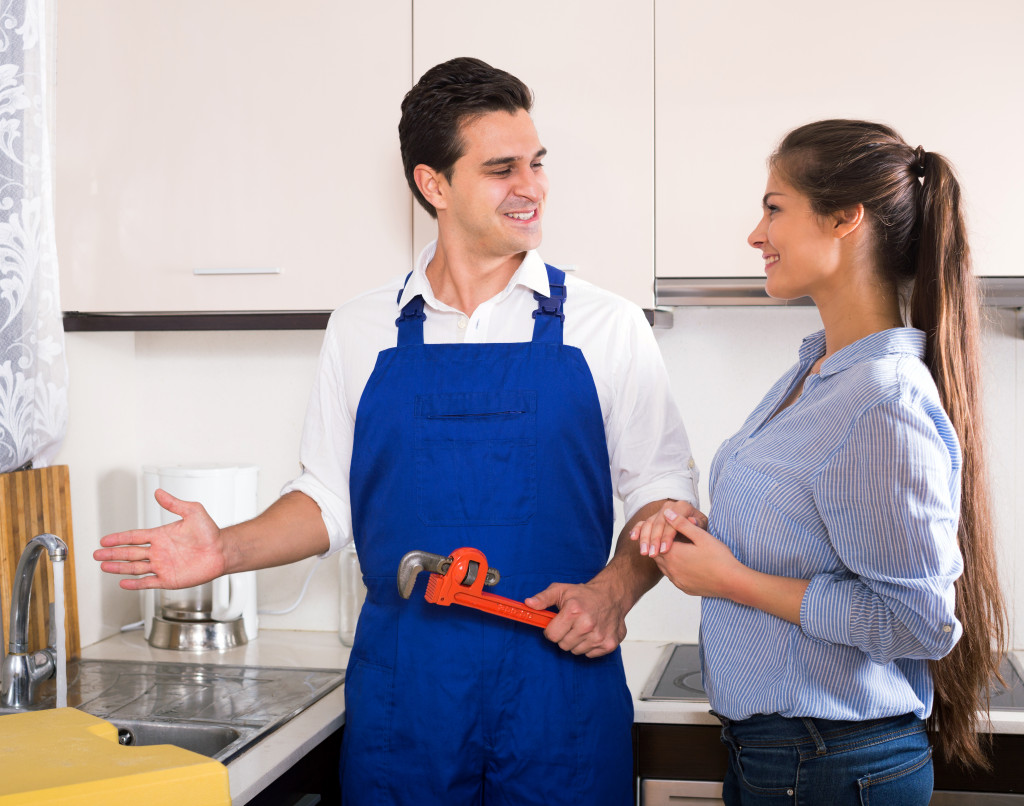- Common plumbing problems include clogged drains, leaking pipes, and dripping faucets.
- Inspect pipe fittings for wear and tear to maintain your plumbing system and check and replace any worn-out parts.
- Regular maintenance and upkeep can help avoid costly repairs and ensure your system continues working properly for years.
- With the correct information, homeowners can easily keep their plumbing systems running smoothly.
As a homeowner, one of your most essential responsibilities is understanding and maintaining your home plumbing system. This is no small feat—after all, plumbing systems are complex and challenging to navigate.
But don’t worry—you can easily keep your system running smoothly with the correct information. So if you want to avoid expensive repairs, here are some tips for keeping your home plumbing system working correctly.
Common Plumbing System Problems
From a slow-draining sink to a burst pipe, plumbing issues can range from inconvenient to disastrous. That’s why it’s important to understand the types of plumbing system problems that can occur and what steps homeowners should take when those issues arise.
Clogged Drains
A clogged drain is one of the most common plumbing system problems that homeowners face. The cause of blocked drains can vary; anything from hair, grease, or even items like toys or jewelry can become lodged in your pipes over time and cause blockages.
To prevent clogs from occurring, avoid pouring grease down your drains and use screens or stoppers in your sinks and tubs to catch any debris before it enters the drain system. If a clog does occur, try plunging the drain before calling a professional plumber.
Leaking Pipes
Leaking pipes are another common problem that homeowners often encounter—especially if they live in an older home with outdated pipes. Leaks can happen anywhere in your plumbing system but typically occur at joints or fittings where two pipe sections come together.
Suppose you notice water pooling around your pipes or water spots on your walls or ceilings. In that case, this is likely indicative of a leaking pipe and should be addressed by a professional plumber immediately, as they could potentially cause severe water damage within your home if left unchecked.
Dripping Faucets

Dripping faucets are one issue that many homeowners attempt to repair themselves without calling in professional help—and while this may be effective depending on the type of faucet, it’s best not to try any repairs unless you have experience doing so, as making an incorrect adjustment could lead to more significant problems down the road such as increased water bills due to wasted gallons per hour (GPH).
Maintaining Your Plumbing System
As mentioned, there are a few steps you can take to maintain your plumbing system and keep it running correctly. Here are a few:
Maintain Pipe Fittings
Pipe fittings are small pieces of hardware that join two pipes together. When these pipe fittings become corrupted or damaged, they can create leaks and cause significant damage to your property. Inspect your pipe fittings regularly for signs of wear and tear, and replace barbed polypropylene pipe fittings as needed. Many plumbers prefer these kinds of fitting because they are more resistant to corrosion and wear. They are also much easier to install, making repairs a breeze.
Check and Replace Any Worn Out Parts
Older homes can be especially vulnerable to plumbing issues due to worn-out parts. If you notice any signs of wear or tear on pipes, valves, or fixtures, getting them checked out and replaced as soon as possible is essential. That way, you can avoid more significant problems down the line.
Watch What You Put Down the Drain

It’s easy to forget that what goes down your drain eventually ends up in the sewer system. To prevent clogs or blockages, make sure not to put anything down the drain that doesn’t belong there—like cooking grease or food scraps. These items can build up over time and cause significant problems for your plumbing system.
Keep an Eye on the Water Pressure
High water pressure can be as damaging as low water pressure for your home plumbing system. If your water pressure is too high, it can cause leaks or burst pipes, which could lead to costly repairs down the road. Make sure to check your water pressure regularly and adjust it if necessary.
Get Started Today
Keeping your home plumbing system running smoothly doesn’t have to be complicated; with regular maintenance and upkeep, you can avoid costly repairs in the future. Start by checking for worn-out parts and replacing them as needed; watch what you put down the drain; and keep an eye on water pressure levels to ensure that your system continues working properly for years to come! With these tips, you should have no trouble keeping your home’s plumbing system running smoothly.
